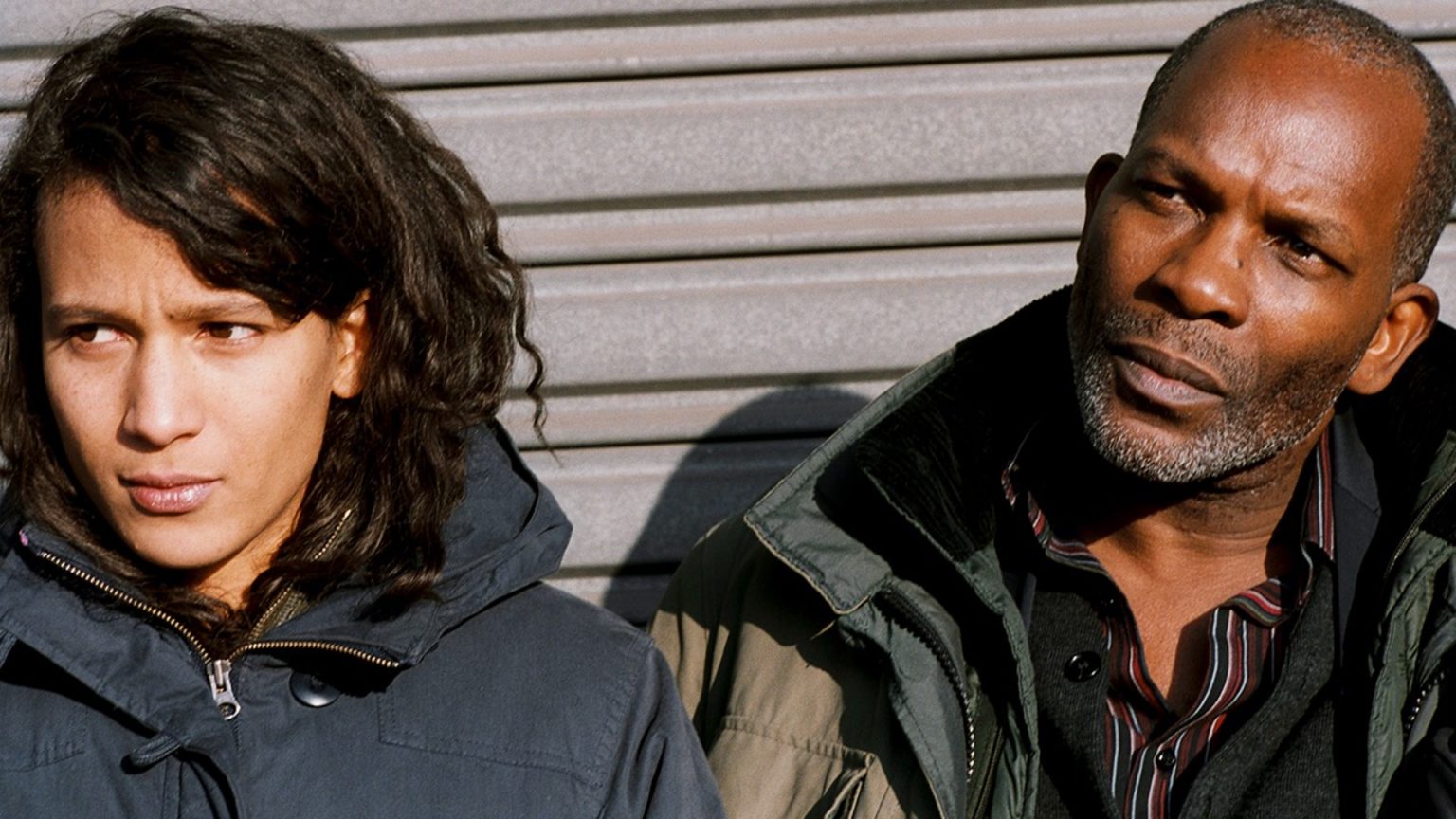Claire Denis’ 35 Shots of Rum (stream now on Fandor) centers on a relationship between a father, Lionel, and his daughter, Joséphine, but we don’t know this at first. The first scene of them together involves her cooking and then answering the door when he comes home from work. She returns to the kitchen after giving him a kiss, and he heads to the bedroom to get changed for dinner. All this evokes the (not unproblematic) archetype of Western domestic life in which the wife receives the husband at home after he’s had a long day of work, and, as a result, the scene invites the interpretation that Lionel and Joséphine are a couple. Only after she explicitly addresses him as “Daddy” a couple of minutes later is their relationship defined as one between parent and child. The ambiguity of the opening scene is precisely about disrupting the impulse to define what a father/daughter relationship—and relationships in general—must look like. The scene is set up so that Western viewers will interpret it as a marital/romantic relationship, only to then subvert this interpretation in order to gently critique the assumptions underlying this bias, while also foreshadowing the film’s interest in subverting the “norm.”
To be more specific, 35 Shots of Rum celebrates the beauty of non-romantic intimacy in a society that has historically gone to great lengths to police “proper” behavior in all areas of social life. In the West, the church’s message of sexual purity, combined with a Freudian sexualization of…well…nearly everything, has made human interaction a vexed, highly regulated affair that hints at “taboo” (since the creation of law is also the creation of transgression) without being able to embrace them. Holding hands, kissing, gazing deeply into another person’s eyes—in contexts outside of romance, such gestures are often nervously dismissed as “awkward” or “weird” by those socialized within Western cultures when, in reality, one should probably stop and consider the origins of that discomfort and whether there is, in fact, anything wrong with such displays of affection. For men, restrictions on expressions of affection have historically been even tighter, given that the Western ideal of masculinity has, for centuries, revolved around equating strength with stoicism.
Within this social climate, it is unsurprising that the archetypal father is often characterized as being aloof, occasionally loving, but seldom as physically tender as the mother figure. He is the “head” of the household in the sense of having the final word but also in the sense of being more disengaged, and less overtly loving. The figure of the father epitomizes Western conceptions of masculinity in that he is often known to care for his children but is seldom expected to express this love openly and unreservedly. He tends to demonstrate care through tangible tasks like earning a living for his family. It is important to clarify that physical touch is by no means the only way to express love, but it is the one that Western society has made the most efforts to control, and in none more so than men.
Among many other reasons, 35 Shots of Rum is revelatory because it presents a father who makes no attempts to hide or curb his love for his daughter. Although Lionel is, overall, a quiet and inscrutable character, the film makes it clear that he cares deeply for Joséphine, and the depths of his love are communicated precisely through gestures that exceed the social norms of Western fatherhood and masculinity. Throughout the film, Lionel and Joséphine hold hands, hug and caress each other, and, in the film’s most beautiful scene, slow dance in a bar to music on a jukebox. In this scene, the two look into each other’s eyes before Joséphine rests her head on his chest., As they sway to the beat, it is clear that the two love one another with a strength that would rival lovers. This degree of earnest emotion teeters on the edge of what Western culture might deem “weird,” but because Denis treats the love of this father/daughter relationship so matter-of-factly, nothing in their behavior ever signals any chance at perversion. Denis does a lot of work to make this intense, platonic intimacy, that has historically been stigmatized in Western society, feel natural.
This expansion of the Western conception of platonic love aligns with the film’s larger theme of “fluidity” and of the crossing of borders and boundaries—multiple film scholars have observed that this theme extends to Denis’ oeuvre in general. This can be seen in how Lionel, though working in France and fluent in French, is of Caribbean descent and retains his native cultural practices. This echoes Denis’ own story as a white Frenchwoman who grew up in colonial French Africa. What’s also interesting is that the film begins with a shot of a train rumbling along the tracks (the destination of which is, of course, pre-set) only to gradually shift away from a sense of routine, protocol, and normativity toward scenarios of stoppage, disruption, and transformation (Rosalind Galt wrote a fascinating article, titled, Claire Denis and the World Cinema of Refusal, on how such interruptions in this film and Denis’ other work comprise a form of resistance against global neoliberalism). A taxi breaks down; the train from earlier is forced to a halt due to an unforeseen obstruction; and Lionel slowly comes to terms with the fact that outside forces will prevent him and his daughter from continuing their harmonious, shared existence. Comfort zones are invaded, molds are broken. Within this space of flux and flow, categories and expectations break down to make way for new possibilities, and Western society’s historically rigid formula for human interaction is no exception. In place of relationships shackled by social restriction, there emerges a potential future of love unhindered.
Jonah Jeng (@JonahJeng) is a Film and Media Studies Ph.D. student at the University of Pittsburgh and a freelance writer whose work has appeared in Paste Magazine, Reverse Shot, and The Film Stage.




